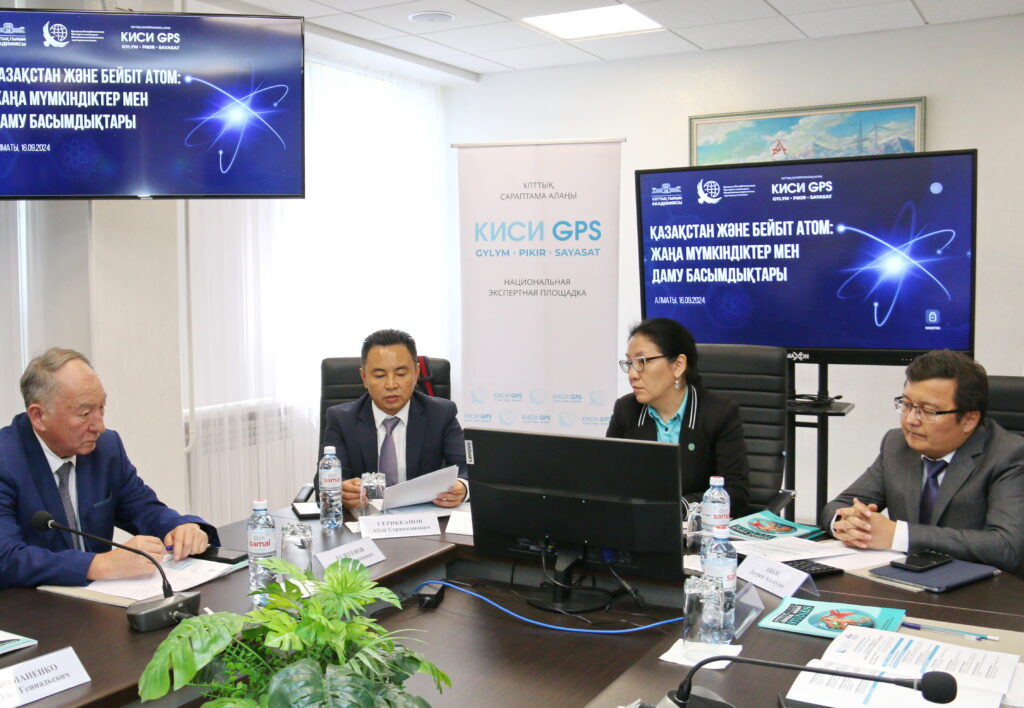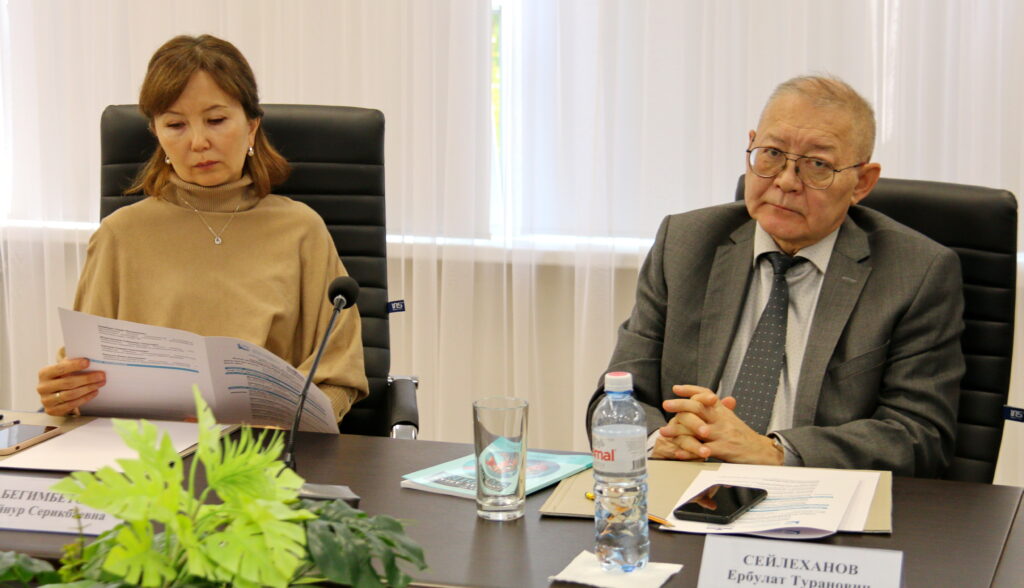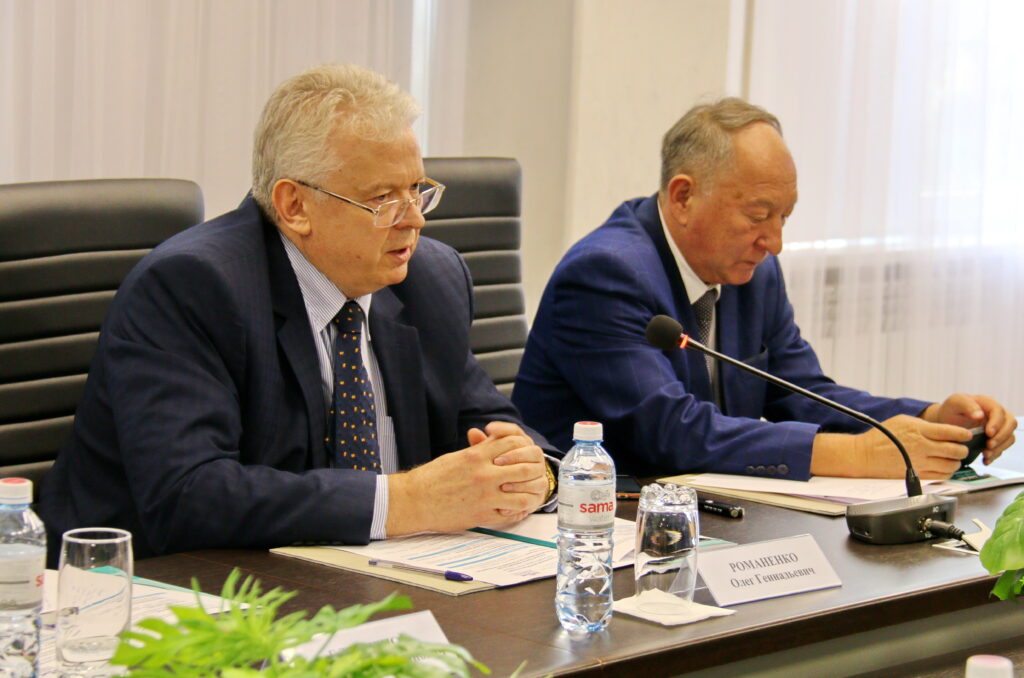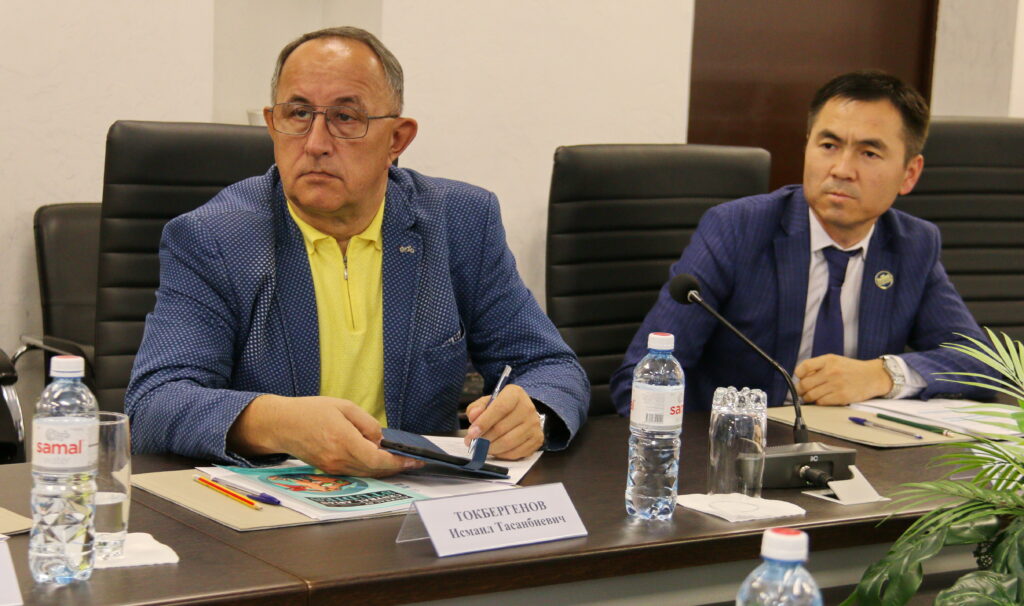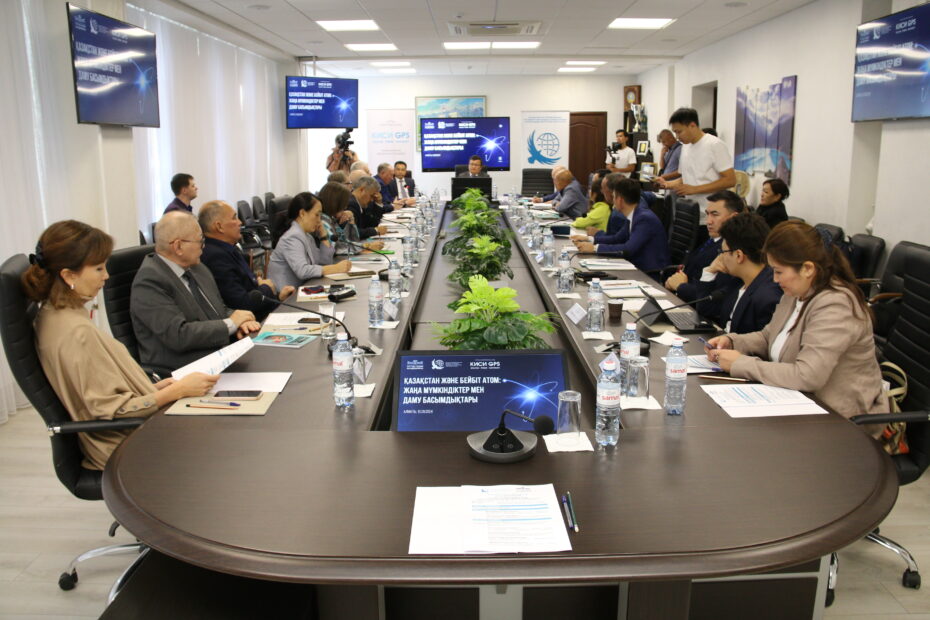Today, the Almaty University of Power Engineering and Telecommunications hosted a meeting of the National Expert Platform «KISI GPS: Gylym. Pikir. Sayasat» on the topic «Kazakhstan and Peaceful Nuclear Energy: New Opportunities and Development Priorities.» The platform was co-organized by the National Academy of Sciences of the Republic of Kazakhstan under the President of the Republic of Kazakhstan.
The event was attended by leading Kazakhstani scientists and experts in the fields of nuclear physics, nuclear technology safety, nuclear energy, and industry. The agenda included discussions on issues such as innovations in energy, nuclear technologies and sustainable development, nuclear energy safety issues, global trends in nuclear energy development, and more.
Opening the meeting, Alua Zholdybalina, Deputy Director of the Kazakhstan Institute for Strategic Studies under the President of the Republic of Kazakhstan, noted that a referendum as a tool for direct expression of the people’s will is the most legitimate way to make decisions of national significance and shared the results of a telephone survey conducted at the request of KazISS.
“Data from several surveys show a trend towards supporting the construction of nuclear power plants. According to a survey commissioned by KazISS, the majority of respondents (53.1%) support the idea of building nuclear power plants in Kazakhstan. Supporters of this idea have high hopes for it, including solving the electricity shortage problem by 2030. A subsequent survey conducted by the AMANAT party’s Institute of Public Policy showed support at 59.3%. The most recent survey by ‘Socis A’ indicated that 60.4% of respondents answered affirmatively to the question, ‘Do you agree with the construction of nuclear power plants in Kazakhstan?'” said Zholdybalina.
Abai Serikkanov, Vice-President of the National Academy of Sciences of the Republic of Kazakhstan, highlighted that the pursuit of a low-carbon future requires innovative approaches from our country, with nuclear energy playing a crucial role in this process.
“With substantial proven reserves of natural uranium and nuclear fuel production facilities, Kazakhstan, if it builds its own nuclear power plant, has every chance to enhance its energy security, reduce carbon dioxide emissions, and strengthen its position on the international stage,” emphasized Serikkanov.
Murat Tulegenov, the Director of the Department at the Institute of Nuclear Physics of the Ministry of Energy of the Republic of Kazakhstan, focused on the aspect of human resources in the nuclear industry in Kazakhstan:
“For operating nuclear power plants, specialists such as electricians, mechanics, and dosimetrists are needed. Given the radiation hazards of the facility, there must also be experts in radioecology and radiation effects on humans. Nuclear physicists are trained at Al-Farabi Kazakh National University, L.N. Gumilyov Eurasian National University, and the Serikbayev East Kazakhstan Technical University.”
Oleg Romanenko, Deputy Executive Director of the Scientific and Technical Center for Nuclear Technology Safety, emphasized the technical aspects of nuclear power plant safety, discussing the protection of the latest generation of nuclear reactors – the very type of project that will be implemented in Kazakhstan.
“Today, 33 countries operate nuclear power plants, and these are the most advanced, industrially developed countries in the world. Essentially, today there is an equal sign between nuclear power plants and developed industry,” the speaker noted.
Dastan Yeleukenov, a member of the Board of Directors of the Association for the Development of the Nuclear Industry, addressed why the decision to build a nuclear power plant in Kazakhstan is being considered now. He attributed this to advancements in nuclear technologies and increased safety.
“Ten years ago, such a step was not seen as indisputable, and arguments against nuclear energy seemed well-founded to many. However, the development of nuclear technologies, especially in the last decade, has demonstrated the ability to find effective responses to existing concerns,” noted Yeleukenov.
Baurzhan Ibrayev, Chairman of the Advisory Council of the New Nuclear Watch Institute in Central Asia, emphasized the strategic importance of the country’s energy independence and security.
“Upcoming technological and social changes are leading to a critical increase in electricity demand. This includes industrialization, urbanization, dependence on digital technologies, the internet, cloud services, artificial intelligence, and more, all contributing to a significant rise in energy consumption to ensure their functionality. Additionally, the country faces issues with the energy intensity of the industrial sector due to outdated technologies used for generating electricity with very low efficiency. From the perspective of long-term economic development, economic stability, energy sector growth, environmental safety, and the prospect of depleting natural resources, there is no alternative to nuclear energy,” stated Ibrayev.
Kaiyrzhan Abdykhalikov, the Chairman of the Civil Alliance of Almaty and member of the City People’s Staff for Nuclear Power Plant Construction, presented arguments in favor of building a nuclear power plant:
“The construction of a nuclear power plant, as well as the development of the nuclear energy sector, is driven by both economic and social benefits. Stable energy supply will provide an additional boost for the creation of new industries, which will, in turn, lead to the emergence of new skilled jobs. Kazakhstan will be able to implement new large-scale industrial projects and gain access to competitive advanced technologies, which, in the long term, will ensure a high level of sustainable development.”
Andrey Kibarin, Professor of Thermal Power Engineering at the Almaty University of Power Engineering and Telecommunications named after G. Daukeyev, shared the results of a foresight study on advanced energy technologies.
“Surveys and expert insights from leading Kazakh experts and scientists allowed us to determine the potential for further technological development in Kazakhstan’s energy sector, with nearly half of the respondents (46%) highly rating the prospects of traditional energy, while more than a quarter (26.92%) chose alternative, including nuclear energy,” said Kibarin.
Inesh Kenzhina, Research Professor at the Institute of Energy and Machine Engineering named after A. Burkitbaev, Satbayev University, stopped on the main trends in the development of nuclear energy worldwide, based on data from the Web of Science informational platform analysis:
“In the past decade, there has been an increase in publication activity on the topic of ‘nuclear energy’ in Web of Science. The number of publications has grown 1.4 times since 2015. According to Web of Science CC, the key research areas in ‘nuclear energy’ are the combination of active and passive reactor protection systems; modular and small reactors; advanced fast neutron reactors; closed fuel cycle; nuclear waste disposal and recycling; and reactor safety and resilience,” reported I. Kenzhina.
The participants of the «KISI GPS» platform expressed hope that the discussion would raise awareness among Kazakhstanis about the pros and cons of nuclear energy and nuclear power plant safety, preparing them for making an informed decision in the upcoming referendum.
